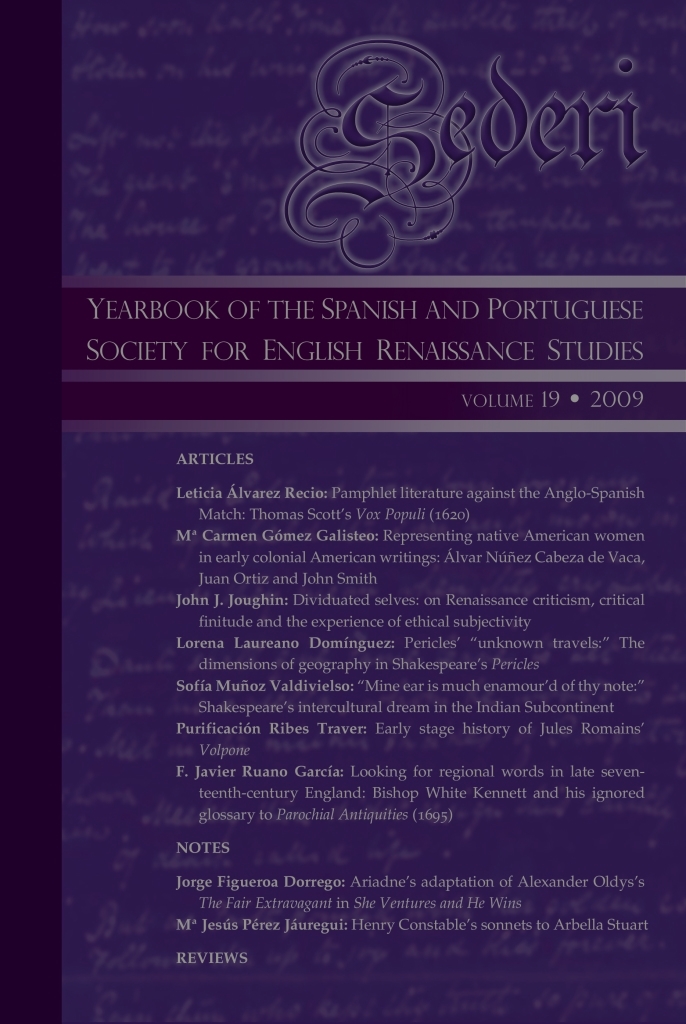Dividuated selves: on Renaissance criticism, critical finitude and the experience of ethical subjectivity
Keywords:
memorial aesthetics, mourning, finitude, subjectivity, Shakespeare, cultural materialismAbstract
This paper situates the work of Renaissance criticism as a type of belated work of mourning or memorial aesthetics. In particular I want to focus on the emergence of a supposedly “modern” form of subjectivity during the theorisation of Renaissance criticism in the eighties –its distinctiveness as well as its occlusions. For the purpose of this essay I take the work of the British critic Francis Barker as, in some sense, broadly representative of a trend in political criticism that was focused on a recovery of the lost significance of the body as a site of subjection. However, I will also argue that the relocation of the mind-body split in the first wave theorisation of Renaissance criticism needs to be read again. The founding dividuation of self in this early criticism is now often criticised for positioning the subject in reductively functionalist or mechanistic terms, as the product of the discourse of power/knowledge that produced it. However, in much of the work that we label cultural materialist or new historicist, the experience of dualism also...
Downloads
Downloads
Published
Issue
Section
License
The copyright holder of the published contributions is SEDERI.The hardcopy and an open-access version of the journal will be published simultaneously. The issues will be available online in the SEDERI website (http://www.sederi.org/yearbook/) and other repositories that have signed an agreement with SEDERI.
The authors who publish with this journal agree to the following terms:
a) SEDERI retains copyright of the essay.
b) If the author wishes to republish or rewrite the essay for another journal, or include the essay published in SEDERI in their personal repositories, or in any other way, they should contact the editors to obtain permission to do so. This will entail citing SEDERI as the original source and sending the editors a copy of the new version, or the link to the website, in case of online publishing.
The author(s) hereby warrant(s) that:
a) The essay submitted for publication is an original creation and does not infringe any copyright or property right of another journal, author or publisher.
b) The essay submitted for publication has not been previously published, whole or in part, and is not being considered for publication elsewhere.
c) Written permission has been obtained for any material from other sources included in the essay submitted for publication.




